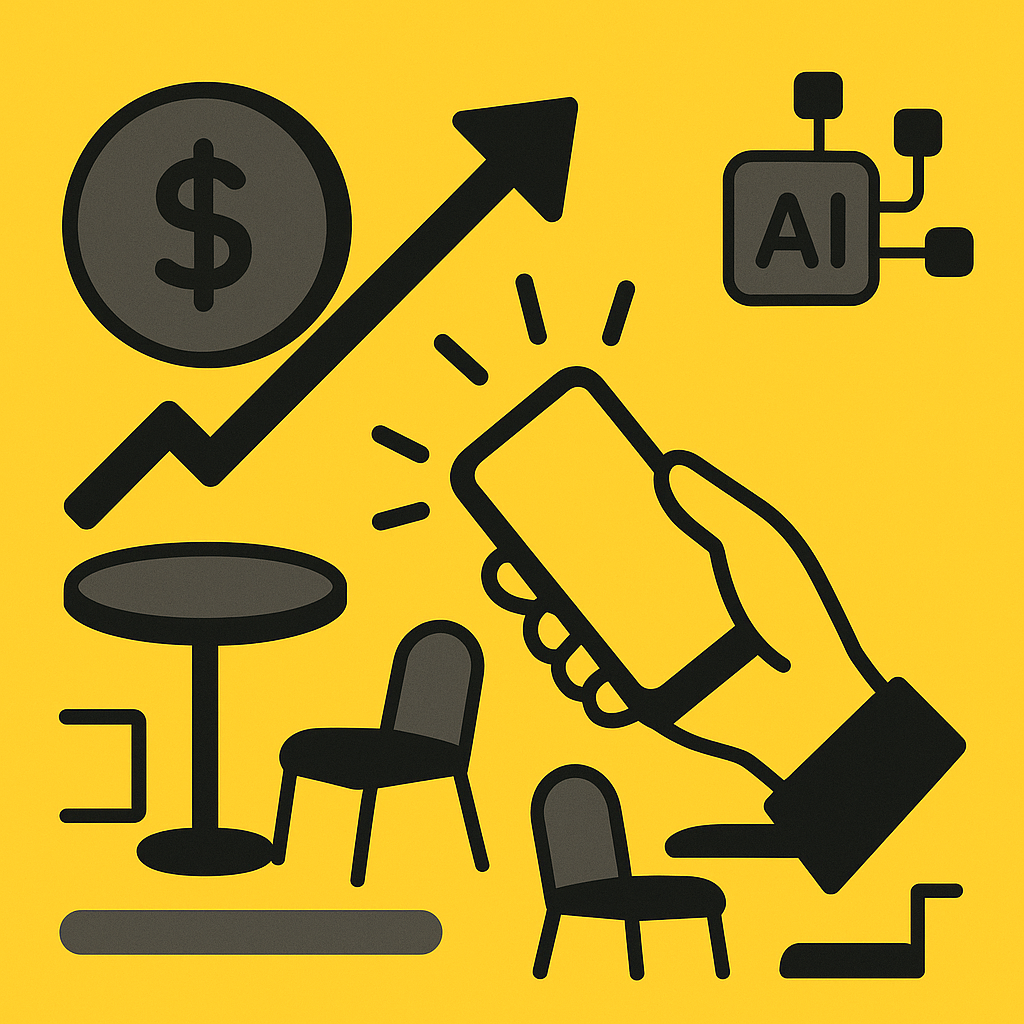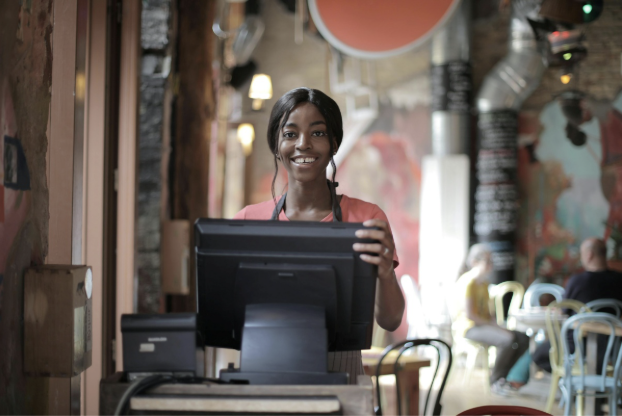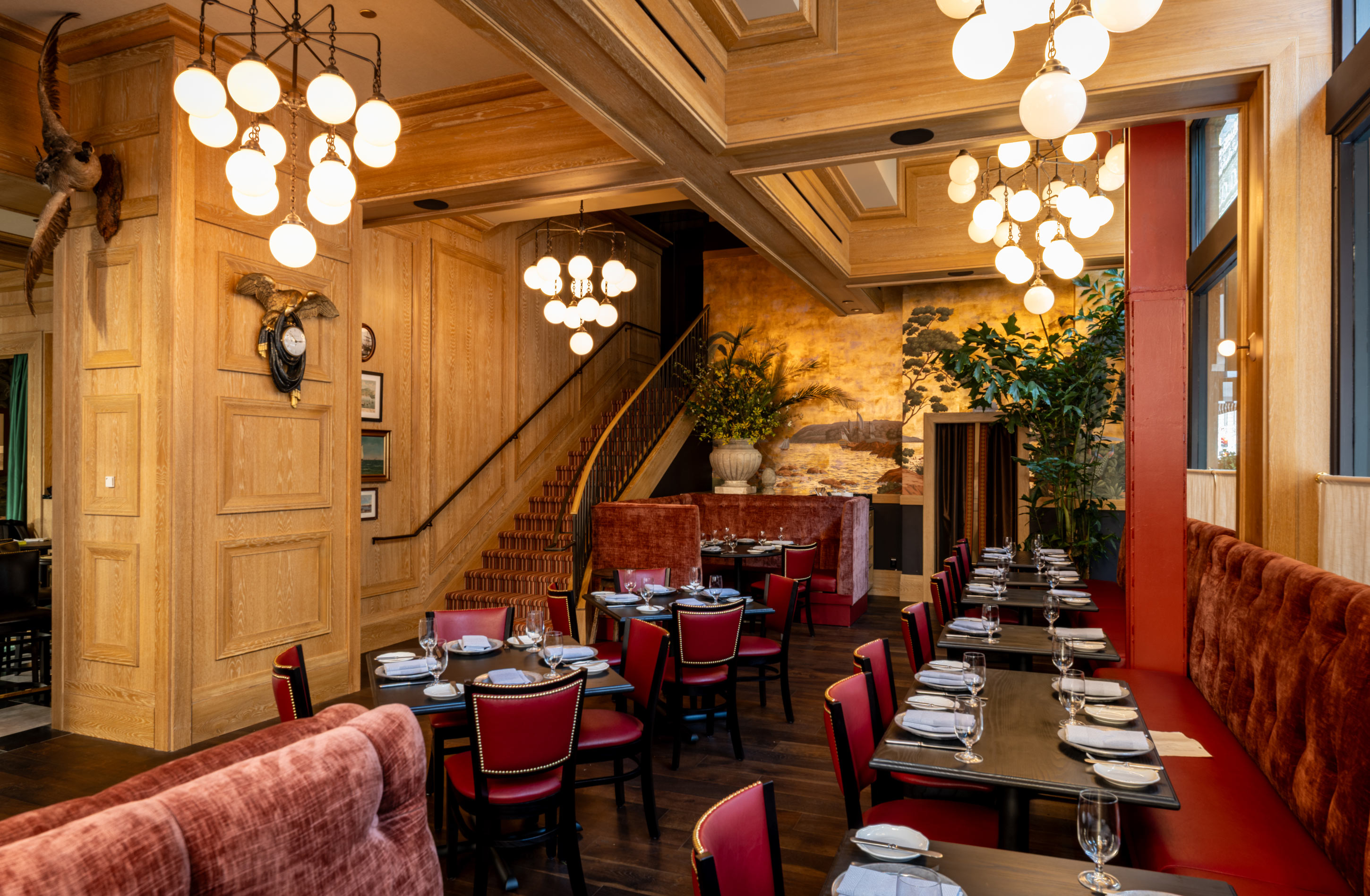
Running a 60-seat bistro means juggling countless moving parts, but few decisions impact your bottom line quite like staffing your front desk. The traditional approach—hiring a dedicated reservationist—can cost upwards of $35,000 annually when you factor in wages, benefits, and training. (Hostie AI) But what if there was a way to handle reservations, takeout orders, and guest communications 24/7 for a fraction of that cost?
Artificial intelligence is making significant inroads into restaurant front-of-house operations, with companies like Hostie generating an additional revenue of $3,000 to $18,000 per month per location—up to 25 times the cost of the AI host itself. (Hostie AI) This comprehensive analysis breaks down the real numbers behind replacing human staff with AI, using actual case studies and interactive calculations that let you plug in your own variables.
By 2027, a 69% increase in the use of AI in restaurants is projected, making this decision not just about immediate cost savings, but about staying competitive in an evolving industry. (Apiko) Let's dive into the hard numbers that will help you make an informed decision for your bistro.
For a 60-seat bistro operating 12 hours daily, you'll typically need coverage during peak hours (11 AM - 2 PM and 5 PM - 10 PM). Here's what that actually costs:
| Cost Component | Annual Amount | Monthly Amount |
|---|---|---|
| Base Salary ($18/hour × 40 hours/week) | $37,440 | $3,120 |
| Payroll Taxes (7.65% FICA) | $2,864 | $239 |
| Workers' Compensation (varies by state) | $1,200 | $100 |
| Training and Onboarding | $2,500 | $208 |
| Total Annual Cost | $44,004 | $3,667 |
This doesn't include the hidden costs of sick days, vacation coverage, or the inevitable turnover that plagues the restaurant industry. (SevenRooms) Many restaurant operators don't realize they're also paying for downtime—those quiet Tuesday afternoons when your reservationist is scrolling their phone instead of generating revenue.
Beyond direct wages, consider what happens when your human reservationist:
Over two-thirds of Americans would ditch restaurants that don't answer the phone, making reliable phone coverage absolutely critical for revenue protection. (Hostie AI)
Hostie AI is an automated guest management system that learns and engages with nuance, designed specifically for restaurants by restaurant professionals. (Hostie AI) The platform starts at just $199 per month and includes:
After integrating with partner establishments such as Flour + Water and Slanted Door, Hostie now handles over 80% of their guest communications automatically. (Hostie AI) This isn't just about answering phones—it's about creating a comprehensive guest experience that works around the clock.
The AI platform can handle all kinds of requests: from simple reservation changes to complex private event inquiries and complicated order modifications. (Hostie AI) Teams have reported growing customer satisfaction in the dining experience and customer service after implementing Hostie AI, suggesting that the technology doesn't just replace human capabilities—it often exceeds them. (Hostie AI)
Let's build a calculator that works for your specific situation. Here are the key variables you'll need:
Human Reservationist Annual Cost:
- Hourly wage: $______
- Hours per week: $______
- Payroll taxes (7.65%): $______
- Benefits/insurance: $______
- Training costs: $______
Hostie AI Annual Cost:
- Monthly subscription: $199
- Setup/integration: $500 (one-time)
- Annual total: $2,888
Using our 60-seat bistro example with an $18/hour reservationist:
But the real magic happens when you factor in revenue generation. AI hosts are generating an additional revenue of $3,000 to $18,000 per month per location. (Hostie AI) Here's how:
A 60-seat bistro in San Francisco's Mission District was struggling with typical front-desk challenges:
85% of Australian restaurant operators are leveraging AI in some way, followed by 70% in the U.S., with processing reservations being a top use case. (SevenRooms) This bistro saw:
Monthly Savings Breakdown:
- Eliminated reservationist salary: $3,120
- Reduced training/turnover costs: $208
- Hostie AI subscription: -$199
- Net monthly savings: $3,129
Monthly Revenue Increase:
- Additional reservations captured: $2,800
- Upselling wine/appetizers: $900
- Large party bookings: $500
- Total monthly revenue boost: $4,200
Total Monthly Impact: $7,329
Annual ROI: 2,540%
The demand for AI chatbots in the hospitality sector has grown significantly, with multiple players entering the market. (EnsoConnect) However, Hostie stands out because it was created by a restaurant owner and an AI engineer who understood the specific pain points of restaurant operations. (Hostie AI)
Consider OpenTable's pricing model, which consists of a $1,000 setup fee, $200 monthly subscription, and per-diner fees ranging from $0.25 to $7.50 depending on the reservation source. (HostMe) For a 60-seat bistro turning tables twice nightly, those per-diner fees can add up to $500-800 monthly—making Hostie's flat $199 rate increasingly attractive.
Hostie integrates directly with the tools you're already using—existing reservation systems, POS systems, and even event planning software. (Hostie AI) This means you're not replacing your entire tech stack; you're enhancing it with intelligent automation.
For bistros processing 200+ covers daily:
Upscale establishments handling wine pairings, dietary restrictions, and special events:
For restaurant groups:
Week 1-2: System Integration
- Connect to existing POS system
- Import reservation data
- Configure menu items and pricing
- Cost: Included in subscription
Week 3-4: Training and Testing
- AI learns your specific terminology
- Test call scenarios
- Staff training on new workflows
- Cost: 2-4 hours of management time
AI's greatest impact in restaurants comes from automating phone order-taking and various back-office tasks, not from robot waiters. (Apiko) During this phase:
By month four, most restaurants see the full benefits:
"What if customers prefer human interaction?"
AI-enabled machines and devices can analyze their surroundings, make informed decisions, and offer customized services to customers. (Johnson & Wales University) Many customers actually prefer the consistency and availability of AI, especially for routine transactions.
"What about complex special requests?"
Hostie can handle complicated order modifications and special dietary requirements, often with more accuracy than human staff who might forget details or make transcription errors. (Hostie AI)
"Will this make my restaurant feel impersonal?"
The AI integrates seamlessly with existing systems, enhancing rather than replacing the human touch where it matters most—at the table with your guests.
| Metric | Human Reservationist | Hostie AI | Difference |
|---|---|---|---|
| Direct Costs | $44,004 | $2,888 | -$41,116 |
| Revenue Impact | $0 | +$36,000-108,000 | +$36,000-108,000 |
| Time Savings | 0 hours | 1,095 hours | 1,095 hours |
| Total Annual Benefit | $77,116-149,116 |
Based on the analysis, implementing Hostie AI provides:
The role of AI in restaurants is expected to be a game-changer, optimizing operations and enhancing customer experiences. (AppFront) For a 60-seat bistro, the decision isn't whether to adopt AI—it's how quickly you can implement it before your competitors do.
What originally started as a solution to help reduce tension has quickly grown into something much bigger in the restaurant industry. (Hostie AI) Consider starting with a 30-day trial during your slower season to:
Track these KPIs to measure success:
The future of restaurant operations is here, and it's more affordable and effective than most owners realize. By replacing a human reservationist with Hostie AI, you're not just cutting costs—you're investing in a system that works harder, smarter, and more consistently than any human employee ever could. The question isn't whether AI will transform your restaurant; it's whether you'll be leading that transformation or playing catch-up to competitors who acted first.
A 60-seat bistro can save over $40,000 annually by replacing a human reservationist with Hostie AI. This calculation includes wages, benefits, training costs, and operational inefficiencies associated with human staff. The AI system provides 24/7 availability, multilingual support, and seamless integration with existing reservation systems at a fraction of the cost.
Hostie AI can handle calls, texts, emails, reservations, and order placements just like a human reservationist. The platform features an AI named Jasmine that communicates fluently in 20 languages and integrates with major reservation systems and POS systems. It provides 24/7 management of bookings and can handle multiple customer interactions simultaneously without breaks or sick days.
The ROI calculation includes direct wages (typically $15-20/hour), benefits (health insurance, paid time off), training costs, recruitment expenses, and productivity losses during breaks and sick days. It also factors in the cost of human errors, missed calls during off-hours, and the inability to handle multiple customers simultaneously. These hidden costs often add 30-40% to the base salary.
Hostie AI is specifically designed for restaurants by restaurant industry experts, making it uniquely suited for hospitality needs. Unlike generic AI chatbots, Hostie understands restaurant-specific terminology, peak hours, and customer service nuances. The platform is trusted by both Michelin-rated dining establishments and neighborhood spots, demonstrating its versatility across different restaurant types.
Most restaurants see ROI within 2-4 months of implementing Hostie AI. With annual savings of $40,000+ for a 60-seat bistro and relatively low implementation costs, the payback period is typically very short. The system starts generating savings immediately by eliminating payroll costs, reducing missed reservations, and improving operational efficiency from day one.
Yes, Hostie AI integrates seamlessly with major reservation systems including OpenTable and leading POS systems. This integration eliminates the need to change existing workflows while adding AI capabilities. The system can handle reservations from multiple sources simultaneously, reducing the per-diner fees that platforms like OpenTable charge (which range from $0.25 to $7.50 per diner depending on the source).
RELATED


